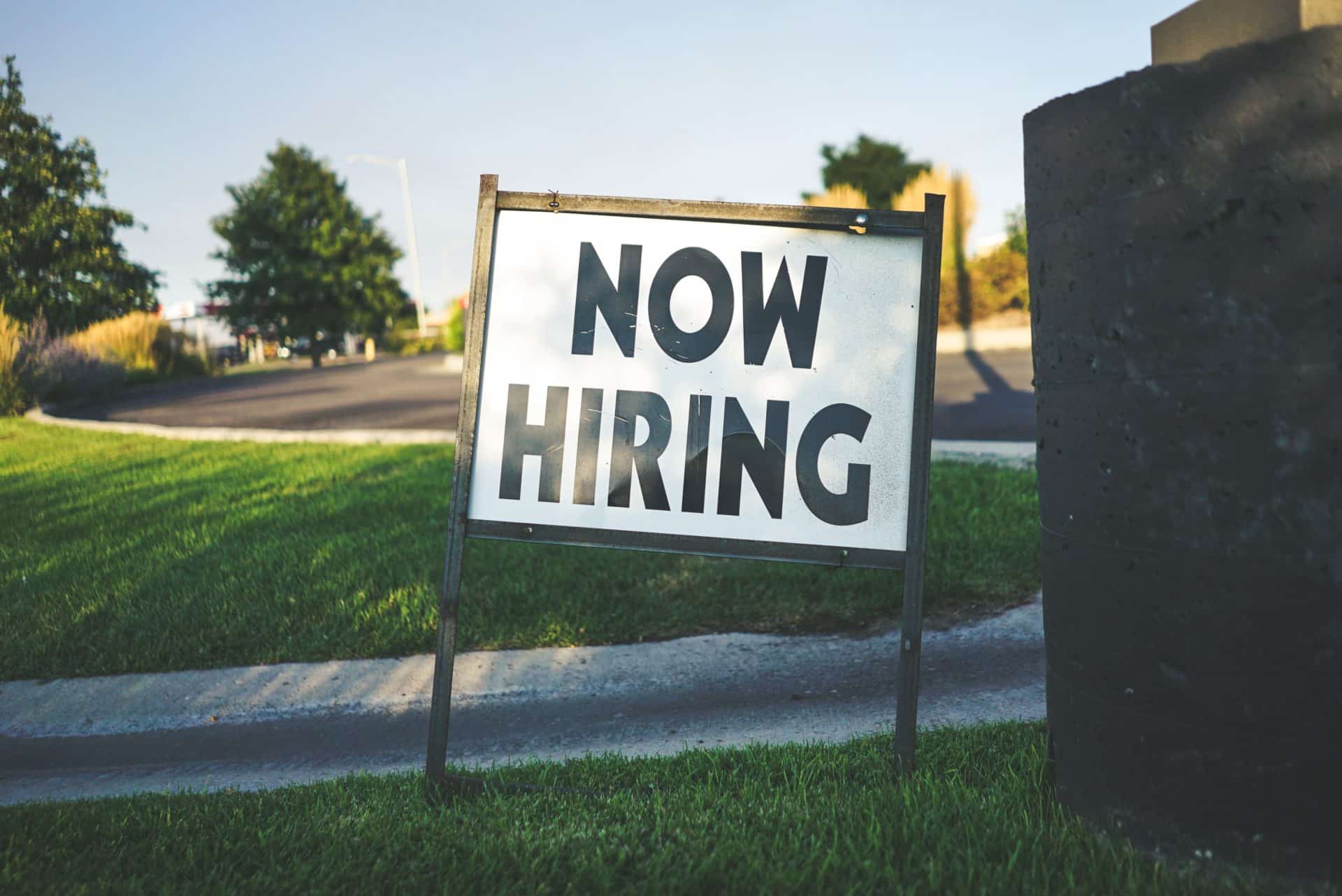Are you interviewing for a customer service position?
Below, we’re going to review the 10 customer service interview questions which will help to provide you with a leg-up on your job search and interview process.
Whether you’re interviewing in-person or via an initial phone interview, these questions will help you to prepare fully and thoroughly.
When it comes to customer service interview questions, we are going to look at both contextual and behavioral interview questions.
These are questions that you can expect to be asked during your interview and being prepared for them will not only give you a leg-up over other candidates but will also give you the confidence to feel fully prepared for your upcoming interview.
What is a Customer Service Position?
Customer service positions are one of the most popular jobs in America.
In 2018, there were nearly 3 million individuals in customer service positions throughout the country.
The average pay for a customer service position hovers just under $35,000 per year, with training being provided on the job.
As a customer service representative, you will primarily be tasked with listening to and managing customer questions and concerns.
You will likely be tasked with providing answers to these questions and concerns professionally and politely.
In addition, as a customer service representative, you will need to provide information about products and services which your employer provides.
You may also be tasked with reviewing customer accounts and making any necessary changes.
Lastly, a majority of your roles and responsibilities will consist of handling customer complaints and providing refunds to eligible customers.
Customer Service Representative Work Environment
Customer service representatives are employed in nearly every industry, making it an attractive career and one that is unlikely to be affected by a recession or downturn in the economy.
While customer service positions have historically been positioned at corporate offices, attitudes are shifting and the possibility to begin working from home or at a remote location is possible.
A customer service representative may be in a full-time or part-time position depending on the position and nature of the work.
Within a retail organization, customer service representatives will typically be tasked with assisting customers in person and will require long hours on their feet.
As customer service representatives will need to assist customers with their questions, complaints, and concerns, there may be a possibility of having to work through holidays and weekends.
These hours, though, typically pay more.

How to Become a Customer Service Representative
Typically, a customer service representative will need to hold a high school diploma or its equivalent.
Most customer service representatives will receive on-the-job training, which typically goes over and reviews the systems and information that you will be addressing.
These training programs usually last between two to four weeks and can be an intensive deep dive into the material and systems.
While there are no set skills or requirements needed to become a customer service representative, some hard and soft skills about interpersonal communication can be helpful.
Interpersonal skills which can be helpful include communication and customer service skills, listening and problem-solving skills, patience, and a basic understanding of computers and their functionalities.
Do you have any previous customer service experience?
From the list of 10 customer service interview questions, the one that you are most likely to be asked is whether or not you have any previous customer service experience.
While not a requirement for many roles, a hiring manager likes to see whether or not you have experience in the field.
A hiring manager will likely ask this question as it allows them to have a better understanding of your previous work experience and your ability to work with customers who may have an issue or problem.
When answering this question, it is best, to be honest, and forthright about your previous experience.
Why are you looking for a customer service role?
A hiring manager may also be interested in your interest in becoming a customer service representative.
Typically, a hiring manager is looking to see your motivation to become one and why you believe you would be a good customer service representative.
Why would you be a good customer service representative?
Hiring managers also like to see why you believe you are a good candidate for a customer service role.
If asked this question, you should pinpoint your ability to deal with and reassure customers who may be upset, angry, or frustrated.
You should highlight your ability to deal with irritated individuals and your ability to maintain your own composure through difficult circumstances.
How do you define “good” customer service?
This is a bit of a tricky question as it is so open-ended.
How you define good customer service can differ wildly from how another person defines good customer service.
When answering this question, you will want to focus on how good customer service allows the customer to feel heard, understood, and reassured.
You will also want to focus on how good customer service allows the customer to finish the call in a happier and more pleasant mood than when they initially called in.

Why are you interested in a customer service role at our company?
Hiring managers also like to see that you completed your homework and research before the interview.
This means you will need to understand the offerings of the company you are interviewing for and have a basic understanding of what a customer is purchasing.
If asked this question, you should respond by stating which products and services the company offers which you find interesting.
In addition, you will want to list out why you find these products or services interesting and how you would relay that information to a customer who calls in.
Where do you see yourself in five years?
Another common customer service representative interview question is where do you see yourself in one, two, five, or ten years.
Hiring managers like to ascertain a potential employee’s career path and determine what their career goals are early on.
While there is no right or wrong answer here, it is always good to show initiative and a willingness to advance in your career.
Some good answers include, “In five years I see myself managing a team of customer service representatives” or “in five years I would like to be a senior customer service representative and provide direct feedback on customer complaints to the product management team”.

Behavioral Questions for a Customer Service Representative Interview
While many interviews contain a mix of both contextual and behavioral questions, customer service interviews almost always have a mix of the two.
The reason?
Hiring managers want to see how you would react in certain situations and what steps you would take if you were handling a particularly difficult customer.
When it comes to answering behavioral-based questions, it is always best to answer in the STAR method.
The STAR method is a structure by which interviewees can provide specific, behavioral examples to commonly asked questions during an interview.
The STAR method lays out a coherent, easy-to-follow structure.
It addresses the who, what, why, or when of a situation, with specific examples and follow-ups that you were able to accomplish.
The STAR method is an easy way to remember to provide the specific situation and follow-up tasks that YOU accomplished.
Telltale signs that the STAR method would be best utilized are questions such as:
- Tell me a time when
- Describe a situation
- Give me an example of
These questions lend themselves well to the STAR method as the interviewer is looking for specific, actionable examples.
They would like to know not only the situation but what you did to handle and resolve it.
The STAR method is an easy-to-remember acronym, which stands for:
Situation, Task, Action, Result
In essence, you would want to utilize the STAR method when you want to create a vivid story of a situation you were able to resolve.
Tell me about a time you had to handle a difficult customer.
What did you do to assuage their frustrations?
Utilizing the STAR method, you are able to answer this question directly and succinctly.
On a recent weekend, I had a customer call in late in the afternoon. (this is the situation)
They were upset about a certain item and requested a refund. (this is the task)
In understanding the product well, I understood that the customer needed to do “x” in order for it to work correctly.
I instructed the customer on how to accomplish this. (this is the action)
The customer thanked me and was happy with their purchase. (this is the result)
Tell me about a time you went above and beyond for a customer.
Hiring managers love to hear examples and times when an employee goes above and beyond to ensure the customer is satisfied.
This is also another great question to answer with the STAR method.
Think about a time you really went out of your way to ensure the customer is happy and that they would continue to be a customer for life when answering this question.

Tell me about a time you were unable to satisfy a customer’s complaints.
While hiring managers love to hear success and happy stories, they are well aware that not every customer interaction ends happily.
If asked this question, be sure to utilize an example that showcases your strengths and attempts to assuage the customer.
However, also feel free to add in what you learned from the experience.
Was there a product flaw that needed to be fixed that you recommended?
Was there a missing instruction that you recommended to begin adding?
Whatever it may be, you still want to show the hiring manager how you went above and beyond for every customer.
How would you handle a customer who wanted to speak with your manager?
Another great question for customer service interviews is understanding how you would handle a customer who wanted to speak with your manager from the get-go of the call.
When a hiring manager asks this question, they want to see what steps you would take to handle the customer’s complaints before transferring them to your manager.
A good answer for this question would be something along the lines of:
“While I understand your concerns and frustrations, I would like to assure you that I will be able to answer and resolve any questions and concerns you may have. If at the end of this call, you are not fully and 100% satisfied, I will be happy to transfer you to my direct manager and provide them with a thorough update on your concerns.”
Conclusion
When it comes to the 10 customer service interview questions, most interview questions will be a mix of both contextual and behavioral questions.
It is prudent that you review common customer service representative interview questions as well as common interview questions to be fully prepared for your interview.
Hiring managers will be looking to see how prepared you are for their questions.
However, they will also want to see that you have conducted your research and due diligence regarding the job role and what will be expected of you.
Be sure to have conducted your research and be prepared to showcase your professionalism and ability to remain calm in the face of pressure.









